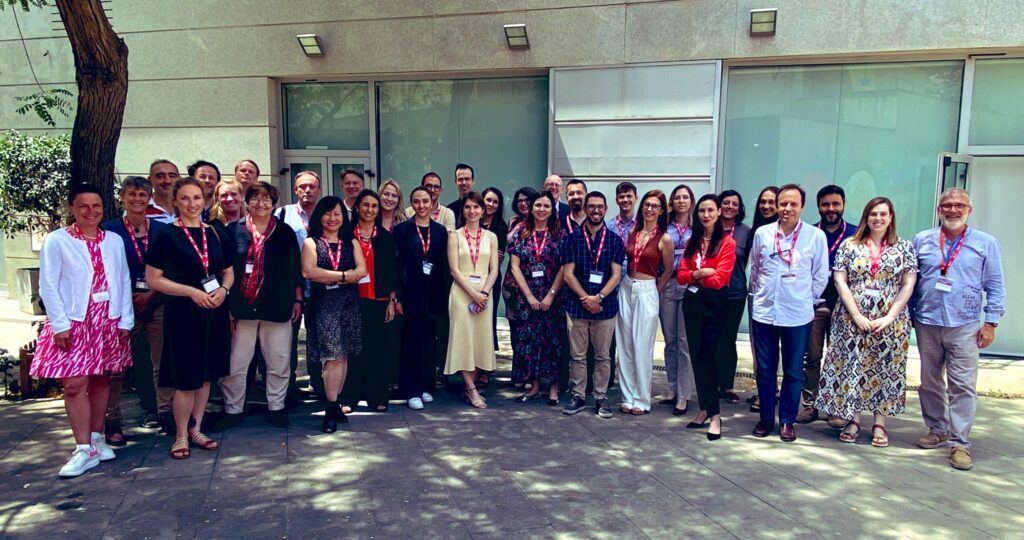The ‘PIECES Project’ has been launched together by the Catalan Institute of Oncology and IDIBELL, and financed by the European Union with more than 7.7 million euros through the ‘Horizon’ calls. This innovative initiative aims to develop, evaluate and disseminate a methodological implementation framework for cancer known as the ‘Integrated Implementation Kit’ in six modifiable risk factors, such as tobacco, alcohol, sun exposure , human papillomavirus, nutrition and physical activity.
The project kick-off meeting, held in Barcelona on June 22 and 23, was led by the project coordinator and head of the Tobacco Control Unit of the ICO and IDIBELL, Esteve Fernández, and the scientific coordinator and deputy head of the Tobacco Control Unit, Cristina Martinez, with the collaboration of IDIBELL’s project manager and researcher, Clara Mercader. The meeting brought together a consortium of 15 members from various countries with different socio-cultural backgrounds and with a target population of 77.7 million inhabitants. Among the partners, the participation of Jordi Piera, head of the Digitization for the Sustainability of the Health System (DS3) group at IDIBELL stands out.
What is the ‘PIECES Project’?
Given the high and growing global burden of cancer, the implementation of effective primary cancer prevention programs is crucial. However, many evidence-based programs that have demonstrated effectiveness in controlled settings often face difficulties when implemented in real-world settings.
The main objective of the PIECES Project is to provide a systematic evidence-based process through a digital tool that facilitates the identification, selection and adaptation of PCP programs, as well as the development of implementation strategies based on evidence that addresses local barriers and limitations.
This tool will create a comprehensive repository of PCP programs, along with other materials, to adapt these programs to the local cultural needs and constraints of future implementers. To ensure the success of the project, a comparative case study will be carried out in multiple locations to evaluate and optimize the results of the implementation. In addition, an in-depth realist assessment will be conducted that will employ various sociological theories to provide insight into the processes by which these outcomes are achieved.


